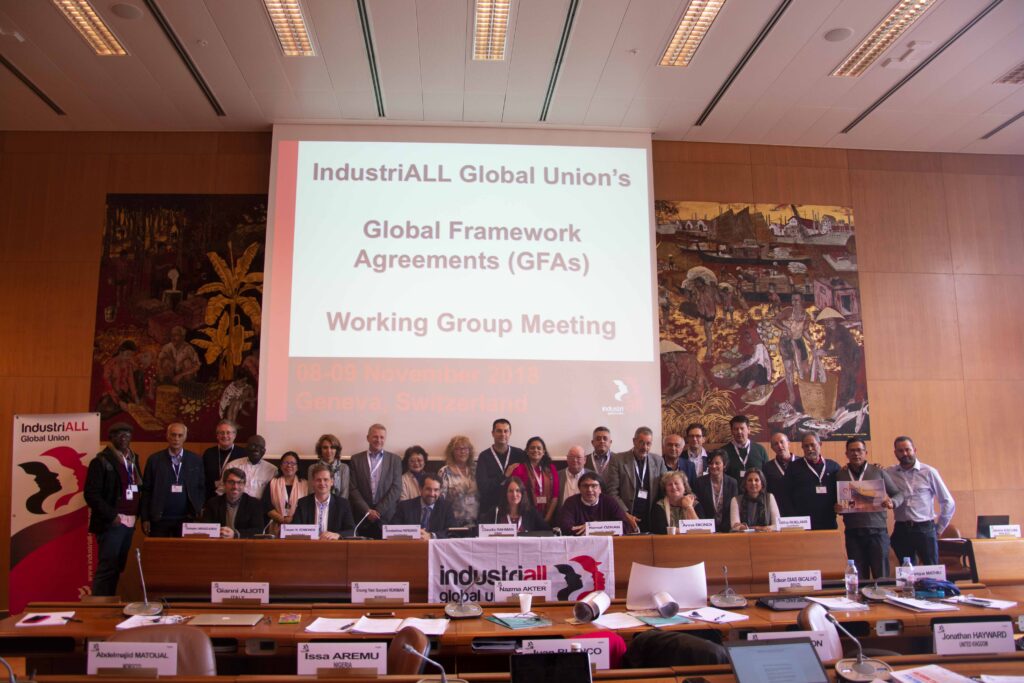12 November, 2018IndustriALL’s global framework agreement (GFA) working group met at the International Labour Organization in Geneva, Switzerland, on 8 and 9 November to report on how GFAs are being implemented, and look at ways of strengthening them.
IndustriALL Global Union currently has 49 global agreements, which are negotiated at a global level between trade unions and multinational companies, and serve to protect the interests of workers across a company’s supply chain.
The GFA working group, which includes representatives from all continents and sectors, reviews IndustriALL’s proposed and current GFAs, and provides comments and recommendations on GFAs to the Secretariat and Executive.
Claudia Rahman, co-chair of the working group, called for more pro-active implementation of the agreements which must have a local agenda. “A GFA should prevent violations of workers’ rights and not simply be a remedy to violations that have already happened,” she said. She called for GFAs “to be integrated into the operational activities of a multinational company and into the management system.”
IndustriALL’s general secretary, Valter Sanches, said company management and unions require training on GFA implementation, while unions must monitor GFAs.
Participants at the meeting recounted how the agreements are being used to assist organizing, with case studies on how to use GFAs in organizing in textile and garment sector in Bangladesh and Turkey as well as using the union power in auto companies in organizing campaigns in supply sectors. An example from Tunisia revealed how the GFA has helped to stop union busting at one particular factory and to improve the union structures, with the aid of German affiliate IG Metall.
The meeting held deep discussions on the strategic use of GFAs in reaching trade union objectives through buzz-groups. Involvement of host unions, organizing in supply chains through GFAs and roles of different actors in GFA processes were elaborated and some conclusions were drawn up.
On the second day of the meeting, officials from the International Labour Organization (ILO), gave presentations about the role of GFAs in social dialogue, which led to extensive debate. It was obvious to all that without freedom of association, a key right, it is impossible to implement GFAs or basic ILO principles.
It was suggested GFAs could make use of strong language on due diligence, outlined in the ILO’s guidelines for multinational enterprises, and present it to companies as language that has already been agreed at the tripartite level. The working group was also called to think about how to better use ILO tools and mechanisms, smartly and politically, to get strong agreements.
The meeting also heard case studies of how GFAs are being used to improve workers’ rights, enable organizing and resolve disputes with examples including chemical company, Solvay, energy giant Total, global fashion brand H&M and German conglomerate, Siemens.
“IndustriALL Global Union has made significant progress in its policies and practices with global framework agreements and the working group has played an important role,” said Kemal Özkan, IndustriALL’s assistant general secretary, who is in charge of the working group.
“However, we still have long way to go in our global mission to advance the rights and working conditions of our members on the ground, particularly at multinational companies. IndustriALL will continue to be a champion in the development of global labour relations, particularly through global framework agreements.”









